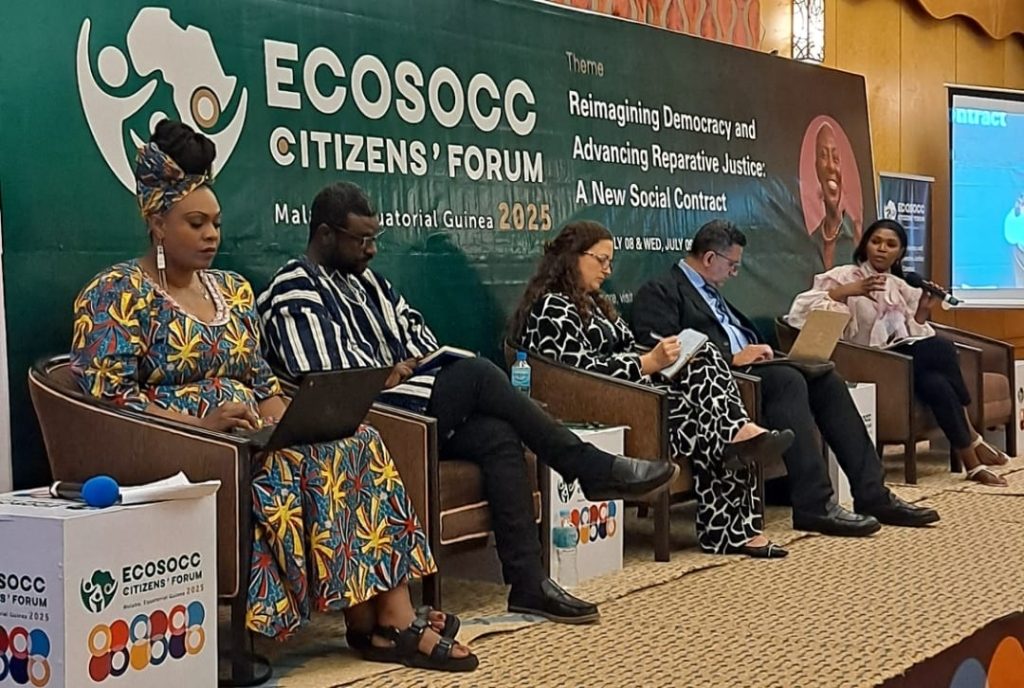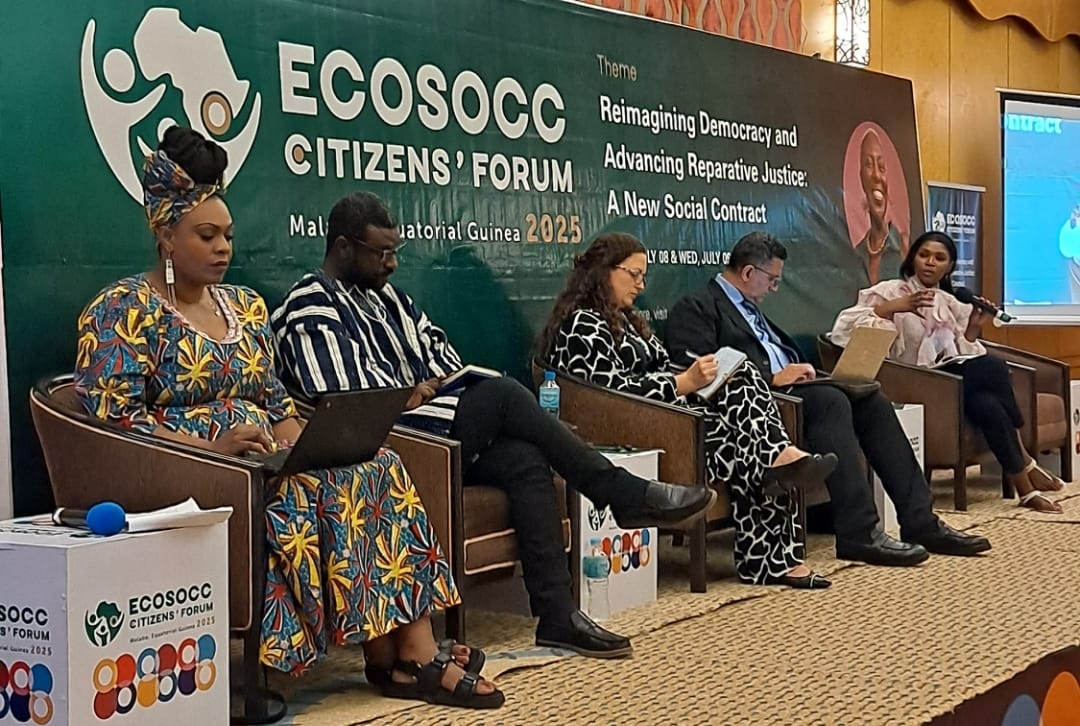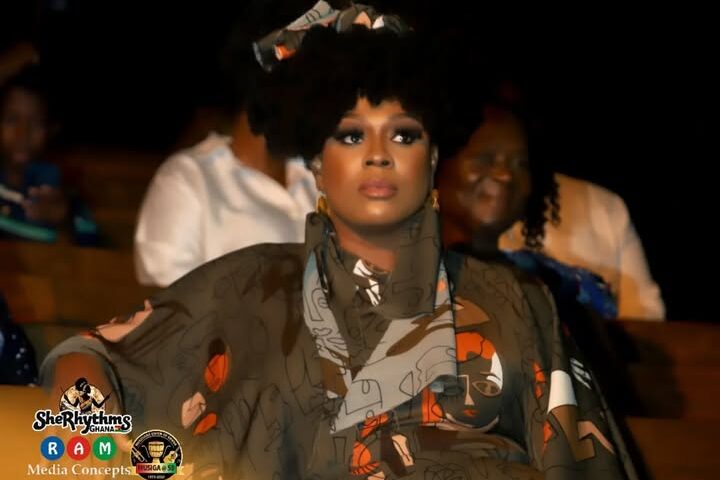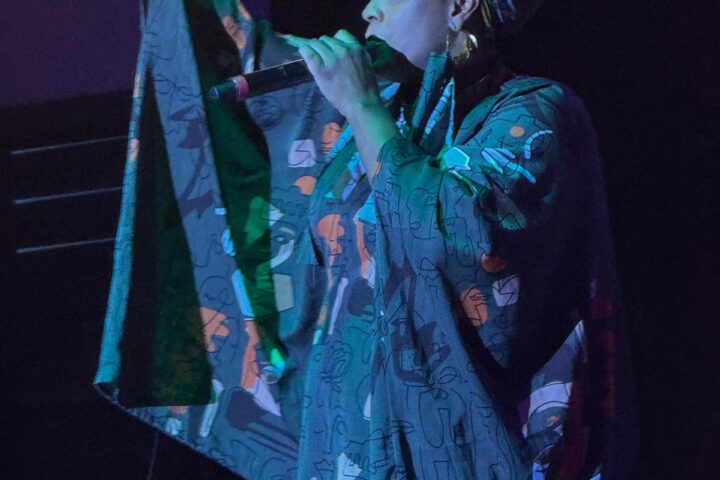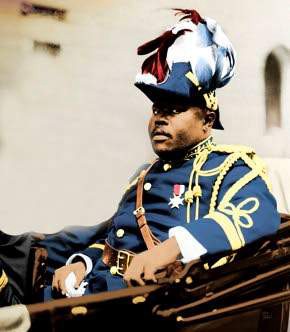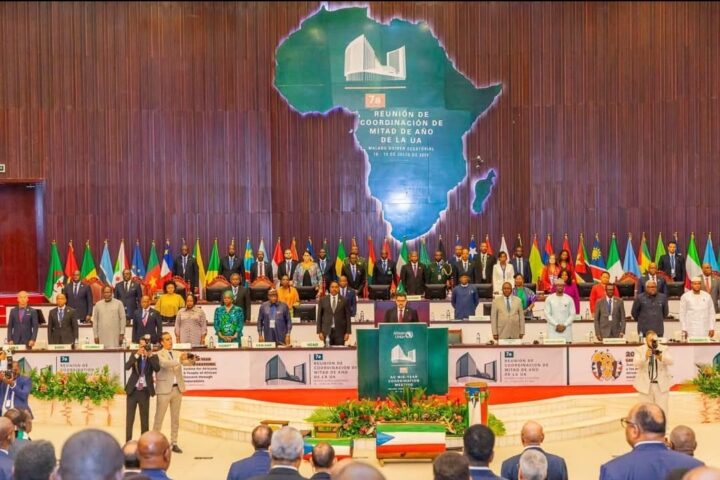To the African Union Fourth ECOSOCC African Citizens Forum and Young People Across Pan Africa.
I come from a line of women who knew what it meant to stand up when it was dangerous to stand. My grandmother and her sisters faced water hoses and police dogs when the U.S. government decided it was better to silence Black voices than to reckon with them. They fought for integration, believing that stepping through doors labeled “white only” would bring us closer to freedom.
And for a time, it did. Doors opened, schools desegregated, buses shared, neighborhoods blended. But history has taught me what my grandmother’s generation could not see at the time: integration without self-determination does not set us free. It scatters us! And you can see that the United States ie the “Divided States of America,” are still proof of that unfinished struggle.
When elite white institutions like Harvard, Yale, and Princeton opened their gates, many of our brightest educators and students left the institutions that had been built for us, by us; historically Black colleges and universities (HBCUs) like Howard University, Morgan State, and Spelman College. These Black schools were hubs of cultural transmission, leadership training, and community pride. But we were told greener pastures lay elsewhere. We believed it. And we paid for it with fractured communities, abandoned institutions, and generations of young people who grew up disconnected from the root systems that once held us strong. This is how you destroy a community: scatter its seeds and hope they forget how to grow together.
Today, I see the same crossroads in Togo where youth flood the streets demanding an end to corruption that robs them of economic dignity. I see it in Burkina Faso, where military transitions promise to shake off neocolonial ties but risk sliding into new authoritarianisms. I see it in Uganda, where Museveni once rose as a guerrilla liberator but now sits decades later as a cautionary tale of what happens when we exchange oppressors instead of dismantling the system. Our people stand at this same crossroads in so many regions across Global Africa, tired of broken promises, yet standing on the edge of new possibilities if we refuse to repeat old mistakes.
When I asked my Africans Rising brother what corruption means for Togo, he said simply “mostly economic oppression.” I understand why the youth are angry. I respect it. I have seen that same frustration in Ferguson and Baltimore, in Lagos during #EndSARS who’s bloody fist dropped as the military shoot them dead without hesitation. But protest alone is not liberation. We cannot feed our youth to the flames and call it freedom. Their lives are precious. They deserve more than slogans — they deserve blueprints for what comes after.
I do not stand for simply exchanging seats at the table of oppression. I stand for repair. We do not want to switch places with the oppressor, this is a war of value systems. The opposition of war is not peace, its creativity! This is why the creatives are essential.
The Diaspora has always answered when called. When fascism came for Ethiopia in 1935, an African American pilot named John C. Robinson, the “Brown Condor”, left Chicago and risked his life flying for Emperor Haile Selassie. He trained Ethiopian pilots, flew combat missions, and helped lay the foundation for what became the Ethiopian Air Force, inspiring the Tuskegee Airmen back home.
Decades later, U.S. students; my peers and elders, rose up on their campuses, using sit-ins, blockades, and boycotts to force American universities and corporations to divest from apartheid in South Africa. That student movement helped isolate the apartheid regime until it fell. Our solidarity helped free Nelson Mandela and inspired millions to know that people power, coordinated across continents, can shift the course of history.
In 2014, when 300 Chibok girls were stolen from their families in Nigeria, I spent my own money to fly across the ocean, stand in Lagos, and sing until the world listened. Some of those girls are home. Many are abroad. All remind us that our presence matters when we choose to show up to create.
Today, I stand with my Africans Rising family across Togo, Burkina Faso, Uganda, and beyond. As leadership of a Teaching Artist Institute working for Art for Social Transformation in nine countries. I am not a confused African American being dazzled by Pan-African slogans to cover corruption. I am a grassroots artivist carrying what my ancestors taught me: that we must remember in order to repair. That if nothing else, we should stay connected in dialogue, even in disagreement.
I have developed the Ukumbusho Cure. Ukumbusho, meaning remembrance in Swahili. It is the cure that calls us back to who we were before our communities were scattered, our land stolen, our ways fractured. It is how we make Cooperative repair possible.
If Togo burns tonight, who among us is ready to build the alternative tomorrow? Who has the land, the cooperatives, the schools, the civic guardians trained to protect instead of oppress? Protest without a plan is how we lose our youth to the same machine we say we fight.
This December, I will go to Togo. Not only because the Ministry of Foreign Affairs has invited me to deliver a keynote, but because I am a keynote worker. I promise you this: I will speak, but I will also work. I will work beside you in the days leading up to the 9th Pan-African Congress, and I will work beside you long after the final speech is given and the cameras are gone.
Hurt people hurt people. But healed people heal people. This is the work now. This is the cure. Rooted in remembrance. Committed to repair.
Ukumbusho Cure. Reparative Future Africa. May we be the ancestors they remember with gratitude.
If you feel these words in your spirit, act with us now. Send resources for the youth in Togo today! I know from experience it’s hard to think on an empty stomach. Let’s make sure our youth eat enough to get through the day so they can plan tomorrow with clear minds and strong hearts. If you have money, time, skills, or expertise to support Togo and the other side of the Ewe border in Ghana during this moment of great transformation, reach me directly at [email protected]
Kim Poole, Performing Artivist Executive Director
Teaching Artist Institute
